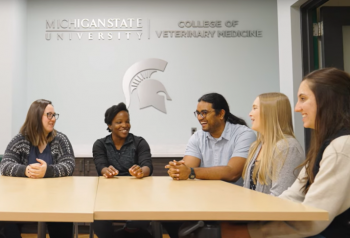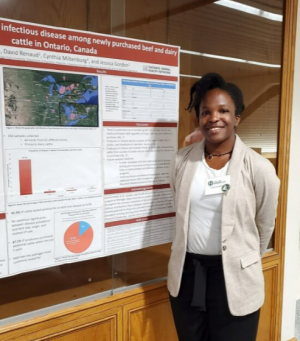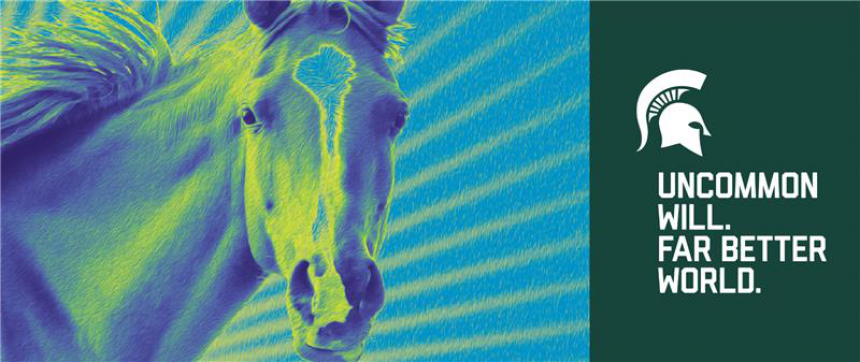The biggest breakthroughs in health—whether it’s tackling cancer, stopping a virus, or transforming food systems—don’t happen in isolation. The biggest impacts come from people who can connect science with care, and discovery with delivery. We prepare these scholars through the College of Veterinary Medicine dual-degree DVM-PhD program.

These students are preparing for careers that extend beyond clinical practice. They are future scientists, public health experts, innovators, and leaders. Through this rigorous program, they’re trained to diagnose disease in the clinic and pursue answers in the lab. They study cancer, zoonotic diseases, antimicrobial resistance, and emerging technologies—then bring that knowledge into the real world, where it’s needed most.
This program doesn’t just shape careers. It multiplies impact. Each graduate goes on to touch hundreds, even thousands, of lives through research, patient care, and the students and scientists they mentor. One student can change a field. One student can change a system.
This mission hits close to home for the College’s dean, Dr. Kim Dodd—herself a graduate of a dual-degree veterinary program. As a student, she completed her PhD at the Centers for Disease Control and Prevention, where she developed and patented a vaccine for a virus that threatens both livestock and human health. She traveled to Africa during the Ebola outbreak, conducting diagnostic testing in a tent. “I was still a student,” she says, “but I had the opportunity to help protect lives on a global scale. That experience changed the trajectory of my career—and my sense of what was possible.”

That’s why this program is such a priority for her today. As a College, we’re inspired to ensure that our DVM-PhD students discover their passions, pursue once-in-a-lifetime opportunities, and believe they can change the world—because they can. We know from experience that these students are the leaders of tomorrow.
But the path is long, the training is intense, and the financial barriers are steep. These challenges all too often force genuinely brilliant and resilient students to choose shorter, less research-intensive paths. This is a missed opportunity.
Your support can change that.
With philanthropic investment, MSU can remove those financial barriers, attract exceptional candidates, and give them the resources they need to thrive. Because every DVM-PhD student we support today becomes a catalyst for a healthier, more innovative tomorrow—for animals, people, and entire communities.
Goal: $22 million
Interested in making a difference? Contact the Development Team.
A First-Hand Account
Zoë Williams (DVM ’21, PhD ’19) knows what it means to bridge the gap between clinical care and research. As a graduate of MSU’s dual-degree program, she focused her PhD research on equine neuromuscular disorders, with an eye toward how oxidative stress impacts athletic performance and disease in horses.
“I am passionate about large animal medicine—specifically about the roles that oxidative stress plays in equine athletic performance and various disease states. This program provided ample opportunities to employ problem-solving skills. Stemming from my love of research, I enjoyed using what I knew about veterinary fundamentals and translational medicine to solve challenging problems across species. Furthermore, the diverse collaborations I experienced at the College have given me a truly enviable network of people to reference and guide me throughout my career.”
Today, Williams is a T32 Postdoctoral Research Fellow with the Colorado Clinical and Translational Sciences Institute, where she’s advancing multidisciplinary research on musculoskeletal disease. Drawing on both her veterinary and research training, she investigates the role of the microbiome in inflammation and osteoarthritis—integrating human and animal health to improve outcomes across species.
Learn More
Watch: Elevating Veterinary Excellence: Scholarships That Transform the Landscape Listen: Insights on the DVM-PhD Dual Degree Program and Equine Research Read: Many Interests, One Health
